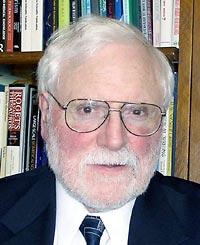Selling Drug Secrets
Some doctors see ethical pitfall in actions that others defend
Seattle Times staff reporters
Doctors offer many reasons for talking about their ongoing drug research to investment firms.
Dr. Corey Langer, a lung-cancer expert at Fox Chase Cancer Center in Philadelphia, said he grew so tired of being ambushed at medical conferences by stock analysts and hedge-fund managers that he started charging them.
"My time is expensive," he said. "I'd rather get paid for giving my time."
Dr. Thomas Friberg, an ophthalmologist at the University of Pittsburgh, said he does it for the intellectual exchange with analysts, many of whom are doctors themselves and know more about the experimental drugs than his colleagues.
"It's sort of like having an 'A' student in your class," he said.
Whatever reason doctors give, legal and medical experts say talking about ongoing research violates confidentiality contracts, and taking money from Wall Street is another breach of ethics in a profession that already has developed a permissive attitude about taking gifts and fees from private industry.
Wall Street has found a way to take advantage of the culture, offering doctors typically $300 to $500 an hour — but up to $1,000 an hour — to field investors' questions. The number of U.S. doctors who take money from Wall Street firms has skyrocketed from fewer than 1,000 a decade ago to 75,000 this year, according to The Journal of the American Medical Association.
Many doctors testing experimental drugs refuse to talk to Wall Street investors about ongoing research. But those who do talk downplay the significance of the information they give, according to interviews with two dozen of them.
Some said they just discussed medical results already publicly known. However, analysts often tout in their reports that they got new information from the research doctors.
Others said the tidbits they shared weren't really valuable.
Langer, for instance, said he believes he obeys his confidentiality agreement because he doesn't divulge full results of drug tests, just personal impressions.
But Pam Sayad, a San Francisco employment lawyer who has reviewed two confidentiality breaches for a biotech company, said doctors have no leeway — results and observations from a drug trial are proprietary until full public release.
According to a typical agreement, doctors "shall not disclose any confidential information to any third party" and must tell the company in writing of "any known misappropriation."
The danger of doctors thinking they can take Wall Street's money while not divulging important information can be seen in the case of Dr. Casey Cunningham, a cancer specialist in Dallas.
Cunningham, who has talked to Wall Street investors for six years, said he didn't understand at first why they asked him questions that seemed meaningless to him as a scientist — such as whether he had enrolled the first patient in a drug-testing trial. Despite his confidentiality contract, he answered anyway.
Now, he said, he knows that Wall Street firms can use such information to gauge whether a company is on schedule in drug development. He said he won't give information that moves the stock market.
"That [investment] world is foreign to most of these doctors," he said. "That makes them vulnerable."
Sayad said doctors sometimes don't read the agreements before signing. Others ignore the agreements because drug companies do not enforce them. The companies, she said, don't want to risk upsetting these leading doctors because companies need them to develop their drugs and advise colleagues to prescribe them.
Dr. Scott Ramsey, a health economist at the Fred Hutchinson Cancer Research Center in Seattle, said he has turned down offers to talk about drug research to Wall Street firms. He said many doctors, however, are tempted by the offers because they think they aren't earning enough.
Cancer-doctor salaries, for example, typically range from $223,000 to $372,000 a year, according to Modern Healthcare, a trade journal. Doctors at academic medical centers often make about half as much as those in private practice.
"There's no end to greed, and doctors aren't immune to it," Ramsey said.
|
Drummond Rennie |
Dr. Drummond Rennie, deputy editor of The Journal of the American Medical Association, has written extensively about the growing commercial influence on medicine. Doctors who think they can give their own impressions about ongoing research are in denial and deep down know it's wrong, he said. The practice, Rennie said, is "outrageous and completely unethical."
Rennie described the sense of entitlement that can corrupt doctors. They leave medical school saddled with debt and working long hours at wages that are relatively low for doctors. Early in their careers, drug companies shower them with gifts such as stethoscopes and textbooks.
"That only has to happen a few times before you realize the world thinks you're incredibly clever," Rennie said. "You're entitled. After a time, you just can't imagine paying for a lot of things that you should pay for."
Some may model themselves after older doctors living lavish lifestyles and yearn to catch up as they get married, buy homes and raise families, he said.
Once physicians become established, drug companies commonly pay them to give "medical education" lectures to colleagues, for, say, $500 or $1,000. The drug company prepares the speech and accompanying slide show.
"In no time at all, your income has suddenly gone up $50,000 to $100,000 for doing something that isn't too arduous, and on which you begin to depend," Rennie said.
Dr. Jerome Kassirer, former editor of the prestigious New England Journal of Medicine, said doctors might rationalize taking extra money from investment firms, partly because they already take gifts and money from drug companies.
The pharmaceutical industry spends $12 billion a year on gifts and payments to doctors, according to the inspector general of the U.S. Department of Health and Human Services. It's not unusual for an influential doctor to pocket an extra $100,000 a year from outside sources, said Mike Broxterman, past president of the National Association of Physician Recruiters, based in Altamonte Springs, Fla.
"It's become part of the fabric of the profession," Kassirer said. "Just about everybody in the profession is on the take."
Langer, the lung-cancer expert in Philadelphia, now says that, after some thought, he isn't sure his reasons for taking Wall Street's money were good ones, noting that his first responsibility is to his patients.
"Perhaps I should stop," he said.


